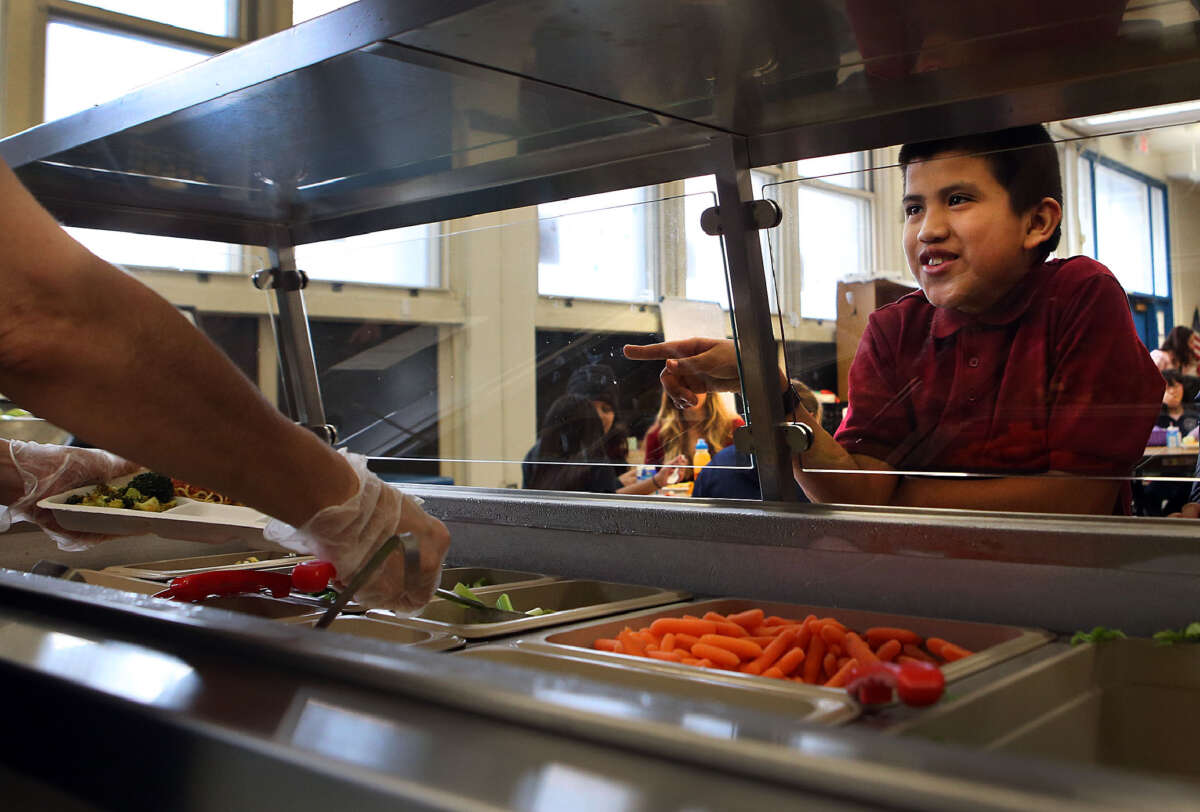The Massachusetts Legislature on Monday approved a budget proposal that requires the state’s public schools to provide all K-12 students with free meals, making permanent a highly successful pandemic-era program.
Maura Healey, the state’s Democratic governor, is expected to sign the budget into law, which would make Massachusetts the eighth U.S. state to make universal free school meals permanent — joining California, Colorado, Maine, Minnesota, New Mexico, Vermont, and Michigan.
“We would not be where we are today without the voices and activism of thousands of advocates and organizations, who made it clear that feeding our kids must be a statewide priority,” Erin McAleer, president and CEO of the Massachusetts anti-hunger group Project Bread, said in a statement Monday. “We are grateful to all of our partners across the state and in the Legislature who enabled this victory.”
Early in the coronavirus pandemic, the federal government approved waivers that allowed public schools across the U.S. to provide free school meals to all students. After federal funding expired last year amid GOP opposition, several states moved to establish free school meal programs financed by state dollars.
The proposed Massachusetts budget includes $171.5 million for the state’s universal free school meal initiative.
School superintendents from across Massachusetts wrote in a June letter that they view universal free meals as “a needed part of education, not simply a nice add-on.” Free school meals have been linked to a number of positive outcomes, including a decline in child hunger and better academic performance.
“Last year, the Legislature made the wise investment to extend school meals through the current school year in the FY2023 budget,” the superintendents wrote. “Because of this extension, an additional 80,000 students ate lunch in October 2022 compared to October 2019 in schools not previously serving universal free meals.”
U.S. Rep. Jim McGovern (D-Mass.), one of the most outspoken anti-hunger advocates in Congress, applauded the Massachusetts Legislature for making free school meals permanent and said the move “will literally change lives, full stop.”
“No child in Massachusetts will ever have to wonder how to get through the school day on an empty stomach,” said McGovern. “The promise of this country ought to be that no child ever goes hungry in any school.”
U.S. Rep. Ayanna Pressley (D-Mass.) echoed McGovern, saying in a statement that “Congress must follow suit and make this a reality for every child who calls America home.”
“In one of the richest nations in the world, no child should ever go hungry, and including universal meals in schools is a step in the right direction towards addressing America’s hunger crisis,” Pressley said. “I’m grateful for the Massachusetts Legislature and to the advocates and organizers who fought relentlessly to make this possible.”
In May, Pressley and McGovern joined other progressive lawmakers in introducing the Universal School Meals Program Act of 2023, a measure that would offer free breakfast, lunch, dinner, and a snack to all students in preschool through high school.
The bill has yet to receive a vote in the House or the Senate.
A large group of House Republicans, meanwhile, has openly declared its opposition to free school meals.
